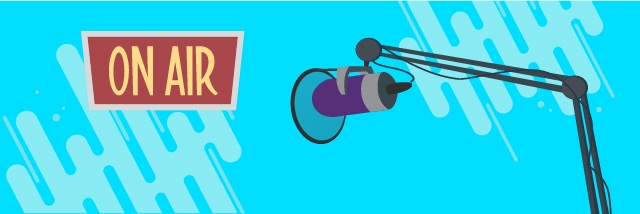Many of us think we can take an honest stab at being a professional voice artist. Don’t you have that one friend who always tries to do their best Bugs Bunny voice at parties? They may even have their own fantasy about how great it would be to sit in a booth saying “Meh, what’s up, Doc?” for a fat paycheck. After all, how hard could it be to act like a misbehaving rabbit with a carrot wedged between its teeth?
It turns out this reputation lingers persistently in the minds of many. Browsing headlines such as “Why Voice Actors Have the Best Job in the Entertainment Industry” certainly reiterates the point. Even voice-over artists themselves often praise the position as pretty much a dream job.
Might there be a dark side, though — a corner of this star-studded, glitz-and-glamour world of voice talent that isn’t quite so alluring? For some, the answer is yes. “The voice-over thing is very selfless,” explains veteran voice talent Neil Patrick Harris. “You go in there, and they’ve hired you for your voice, but they know exactly what they want, and the writer’s there, and he knows exactly how it’s supposed to be said. So you can’t really argue with them, you just have to let them tell you what to do and then do it.”
Does this mean that a professional voice artist is relegated to the sidelines without any input on the final product? Is a pro ultimately just a vessel for the message of the scriptwriters and content creators? Are they expected to just act like robots and stay in their lane?
Well, not quite. You see, there’s more to every story, and…
Wait, we don’t want to spoil the story just yet. Instead, keep reading to learn some things you likely never knew about being a voice talent actor. Then, it’ll be up to you to decide for yourself if you’re ready to join the world of voice-over acting with all its charisma and charm.
Secret #1: You Can’t Always Hang Out in Your Pajamas
Though some animators like to sit and sketch voice actors as they’re speaking to pick up on gestures and physical tics, timing doesn’t always allow it. Consequently, professional voice artists are often filmed using a type of performer surveillance camera. This allows the director to bring individual nuances to the screen — but also makes the idea of wearing pj’s all day a little unlikely.
Take a gander at some of the voice-over recordings for the Lion King (the original 1994 animated feature, of course) for reference.
While you may not necessarily need to be decked out in your best tuxedo or party gown, you get the picture. Sometimes it’s not just about standing in a booth, but about wildly gesticulating and acting like a mad hyena. In a booth.
But…
Of course, you shouldn’t take this as a standard practice either. While animators can certainly get a lot out of studying the minutiae of an actor’s performance, this is not something that’s cost-effective for 2D animation*. Often, you will be dressed in your finest sleeping garments and recording from the comfort of your own home. But, for larger projects — especially for big-name companies — you may have to work onsite. If they’ve really got the big bucks, they might film you to use your performance to inform your character’s mannerisms.
* Why? Because a professional voice artist is normally one of the last pieces of the puzzle. Creating animation (whether 2D or 3D) is a very tough process. It takes plenty of effort to animate believable facial gestures and hand motions. If actors are brought in late in the game, they have to fit their performance to an animation style that’s already finished; conversely, if they’re brought in early, the animation can be tailored to their gestures. This is usually very hard with 2D animation, but easier with 3D. Many video game studios, for instance, use performance recording — a mix of full-body motion capture, and voice and facial recordings.
Secret #2: Looking Crazy is a Necessity
Along with a picture of ‘voice talent actor’ comes the phrase ‘act crazy’ — or at least it should. After all, to an outsider looking in, voice-overs involve people speaking to themselves in an exaggerated manner. Yet, this is a necessary component to success in the field. One of the biggest stumbling blocks to success is the inability to get out of one’s own head. Whether doing voice-overs for commercials, television, or radio, a professional voice artist must embody a character that comes across as authentic and genuine. This is only possible by acting a little crazy.
Many actors practice was is known as “getting into character.” In myriad ways, they try to inhabit the headspace of the character they’re portraying. They try to understand the character’s motivations, emotions, feelings, and attitudes. After some time they can easily slip between their normal, everyday behavior, and the character’s. Some film actors can take it a little deeper, which is known as method acting, but that’s usually not the case with a professional voice artist.
If you’re looking for ways to beat your own mind and stay focused on your character, we can give you a hand. Our article “How to Get Into Character Without Going Crazy” details several techniques the pros use to give great performances every time. As always, the main focus will be to find what works for you.
Each actor and actress has their own method for inhabiting a character; some may be more rational and organized, even scientific, others may eschew thought altogether and try to get into a particular mental or emotional state, letting the character come through them, in a way. Everyone has their shortcuts, so, it’s all about finding your own happy (or unhappy) place.
Secret #3: A Professional Voice Artist Doesn’t Always Make the Big Bucks
If making money is your main motivator when considering a career as a professional voice artist, you may need to reconsider. Voice acting, including doing voice-overs for commercials, is a field that relies on passion to fuel it. Anytime someone starts a business, they have some control over how much they can earn. Keep in mind, though, that it is a daily chore to drum up business when doing voice-overs for commercials, or anything else.
Not everything needs to sound so dire, though. As of 2020, the average pay of a professional voice-over artist in the US hovers around $64,000. Some of the pros at the very top are breaking the $100k barrier if that serves as some enticement. Still, it’s one of the highest-paying freelance professions out there. With the right skills, training, motivation, and opportunities, there’s definitely a buck or two to be made. The average hourly salary also hovers around $35.80, which is not too shabby, if you ask us.
Secret #4: A Professional Voice Artist Needs a Good Sense of Humor
Days spent reciting countless loops of the same, tired lines can quickly grow tedious. Ah, such is the life of voice talent actors. Many people who work on voice overs are also stuck being on-call 24/7 (and not getting paid for all that time). The combination of these two factors illuminates the need for, well, humor! They must be able to laugh at themselves, joke with each other, and find humor in everything — even fart jokes.
But hey, not all is so stressful either! You can manage your own hours, have a lot of free time and are — on average — paid more than the regular working stiff. Not everything is sunshine and rainbows, sure, but if 9-5 office jobs aren’t for you and you’ve got a versatile voice, what’s there to think about? And tediousness doesn’t always have to factor into it either; sometimes you’ll have work so varied that it’ll make your head spin with cartoonish noises.
And that brings up to our next secret!
Secret #5: Just Because You Can Master Bugs Bunny Doesn’t Mean You Can Do Darth Vader
Being a professional voice artist or mastering the art of voice-overs for commercials takes more than doing a mean rendition of Bugs Bunny. Versatility is the name of the game, and if you don’t know the score, you’re apt to struggle. Training and practice can help.
Of course, it doesn’t mean that you can go beyond your limits. If you’ve got a two-octave range as a tenor, it goes without saying that you won’t be singing Louis Armstrong songs anytime soon. The same goes for being a voice pro; work within your boundaries, but always look to expand your repertoire, learn new techniques and — above all — take care of your voice!
Secret #6: Being a Professional Voice Artist Means Getting Bloody
Has it been your fantasy since popping out of the womb to be a real-life Alvin and the Chipmunks? If so, you have an impressive memory, which means you’ll also recall the 5-hour stints of screaming you did during infancy. And remembering this is good because life as a voice talent actor requires creating the same vampiric assault on your throat. Hopefully, you can manage this without pulverizing your larynx to a bloody mess.
Some jobs — like video games, for instance — may require you to scream from hours on end. With a safe technique and the proper rest you shouldn’t have problems. But, if you’re just screaming yourself raw then you’ll just be doing Leonard Cohen impressions for the rest of your professional life. Remember: a professional voice artist works with passion, but also with technique.

Secret #7: Ty Burrell May Want Your Job — and He’ll Likely Get It
It’s a long and lonely road to equality for a professional voice artist. In the beginning, voice talent actors were never credited for their work. Sure, Mel Blanc sort of paved the way toward recognition with his insistence on credit for his work (and that of his colleagues) in Looney Tunes, but it is nevertheless not for the fame that people go into this. Regardless, those who are already famous are flocking to the field in droves — and it places the position of average folks in peril.
But even though well-established actors may beat you for the role of the main character, not all is lost! There’s still plenty of rewarding work out there, and it’s not like indie developers are looking to fill every main character spot with Mads Mikkelsen. (Although they might if they had the money.)
Secret #8: Voice Actors Have to Say Some Really, Really Strange Things
No doubt, the actors cast in movies as hokey as “Good Burger” and “Dude, Where’s My Car?” have said some pretty weird lines. As actors, it’s par for the course that they cycle through at least one lame flick. But then they move on.
On the flip side, those of us who do voice-overs for commercials and television are stuck saying ridiculous lines for the Rest. Of. Our. Lives. That’s right — how many times can you sing about “high adventure that’s beyond compare” as a rubbery, gooey bear?
That’s what we thought.
So, now that the underbelly of voice-overs has been exposed, are you ready to join the ranks as a professional voice artist? If you’ve made up your mind to do so, have fun with us at Bunny Studio — a place where we truly ‘get it’ and work to make it as enjoyable as possible!











